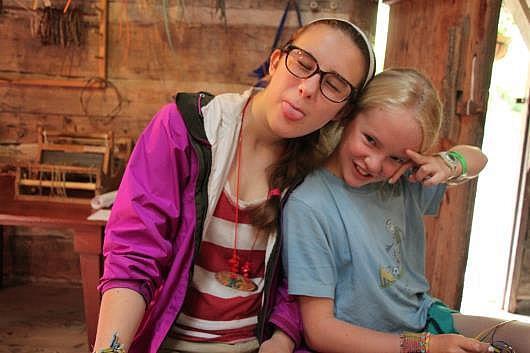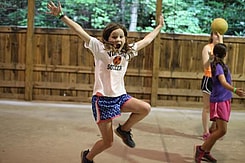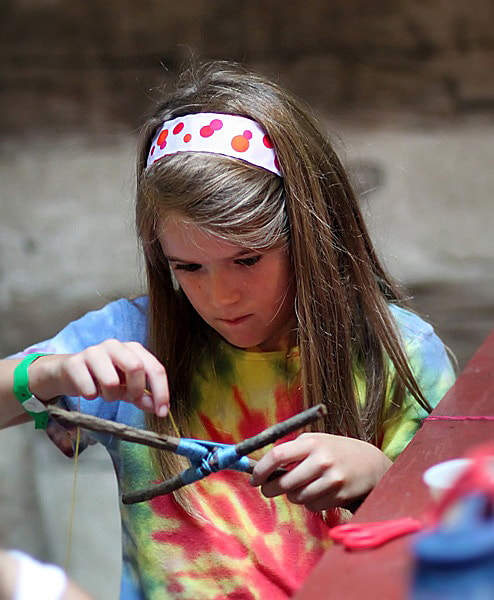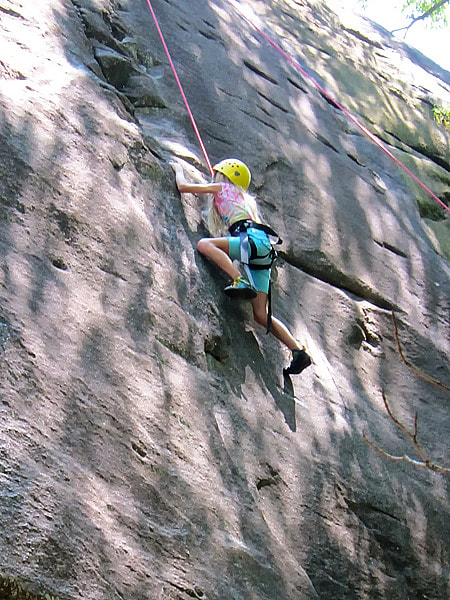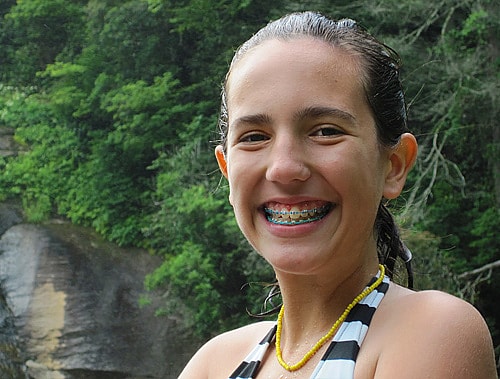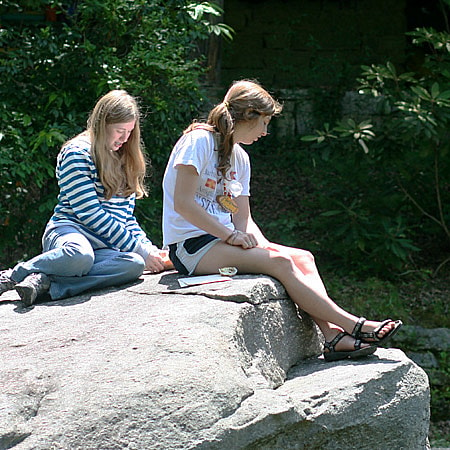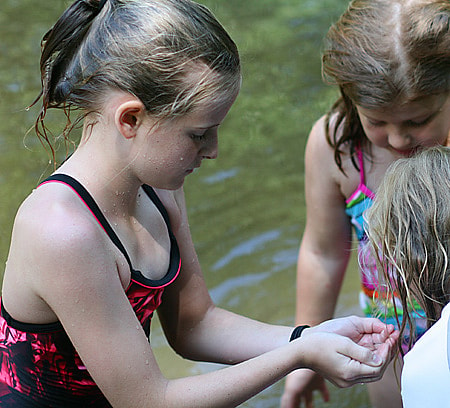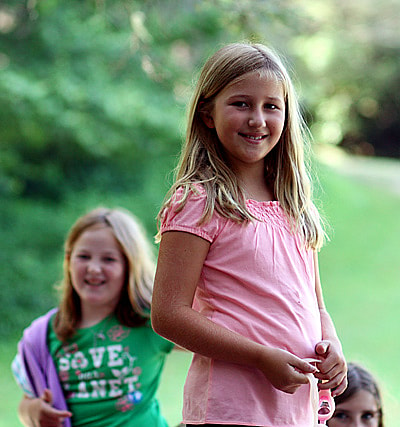One twilight, late in July of 1999, I sat on the Rockbrook hill with my counselor, watching the sun sink down behind the mountains.
Well, she was watching the sun. I was too preoccupied with the stream of words pouring uninterrupted from my mouth to give much thought to the scenery.
I had been writing a new story for the past few weeks, and my counselor had made the classic mistake of asking me what it was about. Forty-five minutes later, she was still nodding along, as I explained the great tragedy of the main character’s mother not understanding that taking time to do her homework would distract her from her duties as a spy (what my stories lacked in originality, they more than made up for in melodrama). My counselor asked all the right questions, laughed and gasped in all the right places, and, in all, served as the perfect sounding board for my eight-year-old yarn-spinning. I was delighted.
Today, I remember very little else about the story in question (thank goodness), and even the once-familiar face of my counselor has faded into a half-remembered smile from an old cabin photo. But what I do remember with perfect clarity were the sensations I felt that evening on the hill.
The astonishment at being asked about my story out of the blue.
The shyness with which I began–sure that she only wanted to hear the barest details.
The glee with which I greeted her many follow-up questions.
And, more than anything, the growing realization that she was going to let me keep talking. There was no polite smile, and change of subject as the details of my story got more and more intricate. There was no attempt to steer the conversation to a topic more interesting to her. There was no indication at all that my counselor would rather be anywhere else than right there on the hill, listening to a play-by-play of my story.
My whole life to that point, I had been trained on how best to be a kid in the grown-ups’ world. How to listen to what the grown-ups tell me. How to eat the food the grown-ups put in front of me without complaint. How to entertain myself or play with other kids rather than pester the grown-ups with constant requests for games or entertainment. How to recognize when the grown-ups are discussing something important, and wait my turn. How to be patient, quiet, seen and not heard. How, in short, to be a polite, well-behaved child. And these lessons weren’t a bad thing–they prepared me for the day when I would have to become a well-mannered adult.
Now, I’ll be the first to admit that some of these lessons sank in better than others. I was, and still am, rarely seen without also being heard. But I was also always aware of how far I was trespassing beyond the bounds of good manners for a child. Whenever I talked to a grown-up, I would be waiting for the moment when I’d be told that my time was up, so that the grown-up could turn back to whatever grown-up matters there were to occupy their time.
And yet, there I was on the hill, treading far past the dictates of good manners, as I spent ten minutes describing the main character’s relationship with her best friend (and mortal enemy), and my counselor made no move to stop me.
It was during that wonderful hour on the hill, several days into my first session at camp, that I first began to understand the central truth of camp: this is not the grown-up world. It is proudly, defiantly, magnificently not the grown-up world. I was not a guest in this new camp world, there to have Very Important Life Lessons served up for me by the nearest available adult. I was an active participant in this community, able to make my own choices, talk until I was blue in the face, make my own mistakes, and craft my own camp experiences. And every adult in sight was there to make sure I had the time of my life while doing it.
These days, I have the rarer opportunity of being a grown-up at camp. I get to be the guest in kid-world. Whenever I get lost in the logistics of camp–those lists of names, activities, and out-of-camp trips that pass through my hands every day–I can be snapped out of it at any moment by an invitation to a dance party in a lodge, or to the newly opened spa in Junior 3. I can be asked to braid one girl’s hair on the steps of the dining hall, and find myself braiding six others in quick succession afterwards, because why on Earth should I say no?
I get to watch as campers spend the first few days of camp coming into their own, and taking ownership of this new world. I get to see the looks of dawning possibility when they first choose their own schedule for the next three days. I get to see them try the food on the dinner table and, if they decide it isn’t for them, head off to the salad bar to find something more to their liking. I get to see them come alive in kid-world, and realize that, unless their safety or someone else’s is at risk, we won’t hold them back from pushing their limits and experiencing new things.
But my favorite moment to watch will always be those one-on-ones between camper and counselor. When I get to see the moment that the child realizes that her ideas, opinions, and interests are sincerely appreciated by an adult she respects–an adult who will listen without promoting their own ideas as being better informed or more interesting.
That’s the moment when they realize they’ve entered kid-world, and it’s going to be better than they even imagined.

